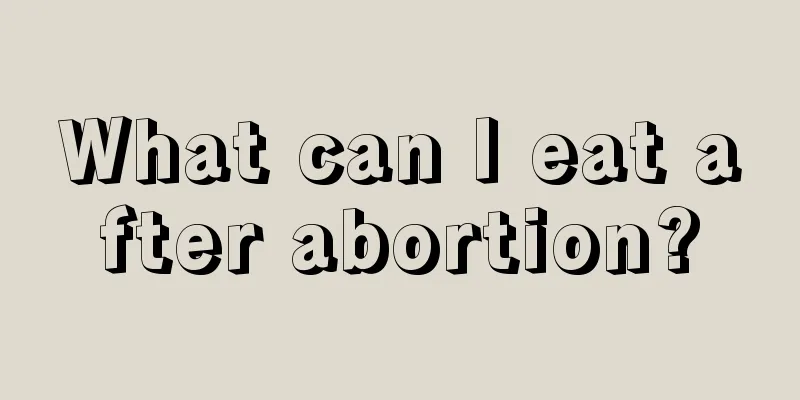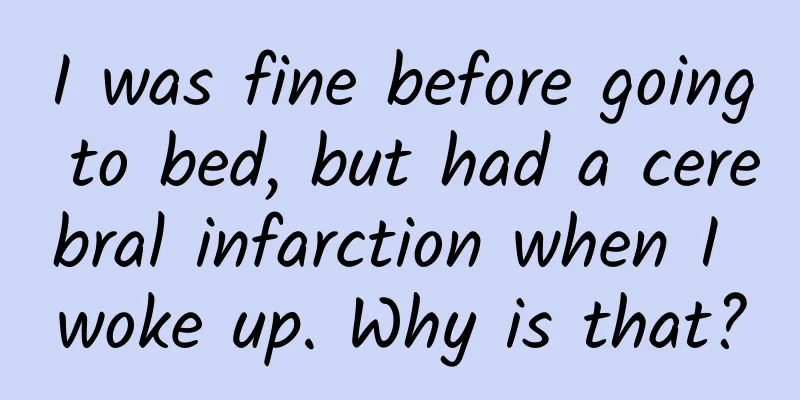Shorter menstrual periods

|
In the past, when we were young, most girls didn’t pay much attention to the regularity of menstruation, because when women first start menstruating, the cycle is not fixed for at least two years, and there may be financial instability, so everyone didn’t care much about it. Over time, they began to get used to not calculating the menstrual cycle. When people asked about their menstrual cycle, most of them couldn’t answer. They wanted to see what was going on with the shortening of the menstrual cycle? The formation of menstruation What is the nature of menstruation? People generally believe that uterine bleeding is menstruation, but what doctors call menstruation is actually the process of follicle development. Generally, only one ovarian follicle matures and ovulates each month. After ovulation, a corpus luteum is formed. If there is no conception, menstruation will occur immediately. Then the next cycle begins, and a new dominant follicle is selected to grow and develop, and the cycle repeats itself. It can be seen that for the continuation of the race, the ovaries have made careful preparations with hope time and time again. Such dedication to duty deserves great praise! Causes of Shorter Menstrual Cycles The phase before ovulation is the follicular phase, during which estrogen is mainly secreted; the phase after ovulation is the luteal phase, during which estrogen and progesterone are secreted. Estrogen makes women slim and radiant, and can also protect the cardiovascular, skeletal and nervous systems, so estrogen is essential and vital for women; while progesterone can assist estrogen in completing its reproductive function and prevent estrogen from over-stimulating the endometrium. Estrogen and progesterone are secreted by the ovaries. The ovaries are mainly composed of many follicles, so the ovarian reserve function is closely related to the quantity and quality of follicles. The number of follicles is determined at birth, and they die every moment thereafter, becoming fewer and fewer. The quality of the remaining follicles will also deteriorate with age due to constant influences such as harsh environment, unhealthy diet and lifestyle habits. After the number and quality of ovarian follicles decrease, our reproductive endocrine system will also undergo subtle changes. After some mediation, it will reach a new balance. As a result, the selection of dominant follicles will gradually be advanced, and the follicular phase before ovulation will gradually shorten, which will manifest as shorter and shorter menstrual cycles. It can be roughly understood as a compensatory manifestation after the decline of ovarian function, similar to the early bird catches the worm. As the ovarian function continues to decline, the ovaries will try their best but fail to produce any viable follicles. Your menstrual cycle will be prolonged or even irregular, and you will enter perimenopause, which means you will soon enter menopause. Should we intervene after the cycle becomes shorter? Many middle-aged women like to seek ways to maintain their ovaries and want to keep themselves young forever, but so far modern medicine has not found a way to reverse ovarian function and make the ovaries younger. We can have plastic surgery to make our body and face look younger, but the inner age of the ovaries cannot be saved and it will always reflect your actual age. Should we intervene at this stage? As long as menstruation comes as scheduled, the cycle is longer than 21 days, and the amount of bleeding is not too much, it can be observed; but when the menstrual cycle is prolonged or bleeding is irregular, management is required. Many people believe that menstrual disorders are a sign of impending menopause and do not require management. In fact, the perimenopause period is a high-incidence period of endometrial cancer. During this period, there is no ovulation, only the effect of estrogen alone, and a lack of progesterone antagonism. The risk of endometrial cancer is greater, and the first manifestation of endometrial lesions is irregular bleeding. Therefore, if menstrual disorders occur during this period, you must pay attention and seek medical attention in time. If you encounter the following two situations, you should seek medical attention in time to avoid future troubles: 1. If your period does not come when it is supposed to, for example, if it has not come for more than 40 days, you should seek medical attention promptly. 2. Menstruation does not come when it should: The menstrual period is generally 3 to 7 days. If there is still irregular bleeding after more than 10 days, you should seek medical attention in time. |
<<: What is the method of applying mirabilite to the breast?
>>: How many days after menstruation is it easy to get pregnant
Recommend
What are the precautions for uterine cysts?
Uterine cysts should be familiar to some women wh...
What to do if you have a low fever during pregnancy
In many cases, being pregnant is really not easy....
How does Traditional Chinese Medicine treat dysmenorrhea?
Some women often complain about how difficult it ...
Menstrual care knowledge
I believe every girl is familiar with menstruatio...
I had lower abdominal pain after human insemination.
For some couples who have difficulty conceiving, ...
What is the treatment for bad breath in women?
It is so embarrassing to have a bright and beauti...
The girl has a lot of acne on her back
In daily life, many female friends have been trou...
How to maintain the uterus and ovaries
If women want to make themselves healthier and mo...
Reasons for irregular menstruation after childbirth
The arrival of a child is so important to our fam...
What is vulvar dystrophy?
Is there also malnutrition in the vulva? The answ...
What are those little red spots that suddenly appear on my body? Can they turn into cancer?
I believe many people have had this experience - ...
What are the classifications of ovarian tumors?
Ovarian tumors can be classified in many ways, so...
Can I breastfeed if I have shingles?
Shingles is a skin disease caused by a viral infe...
The husband did this and his wife could never have children
The disease of infertility is a devastating blow ...
What’s going on when pregnant women always hear bubbling sounds in their stomachs?
Pregnant women pay close attention to their bodie...









